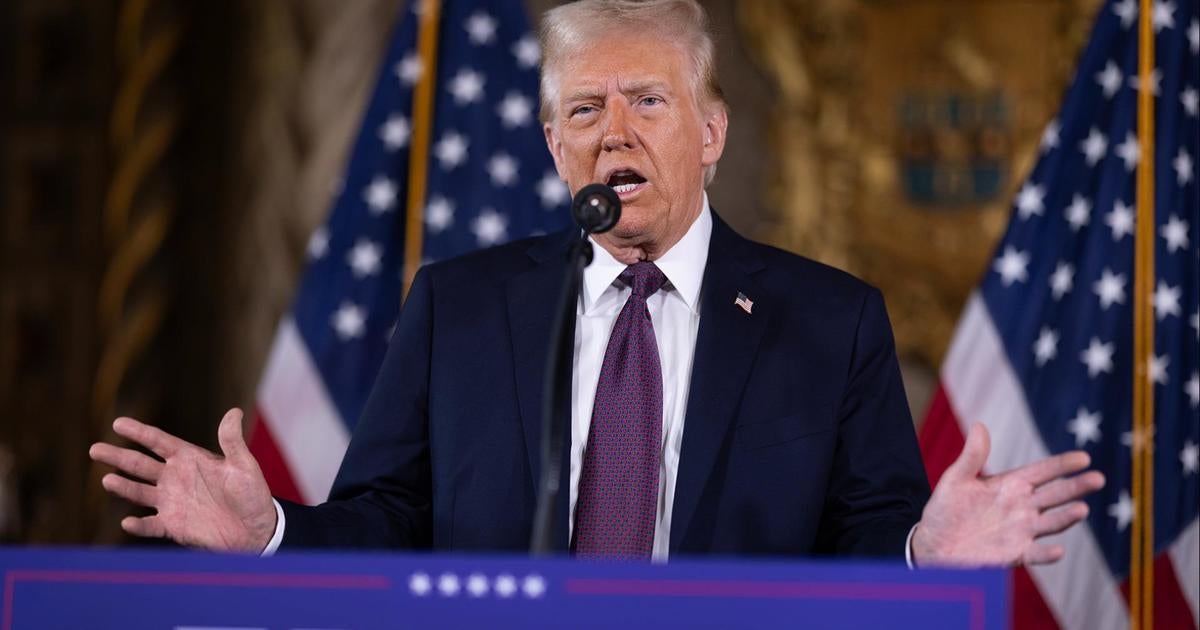Washington — President-elect Donald Trump asked the Supreme Court on Wednesday to intervene in the “hush money” case ahead of his scheduled sentencing Friday.
In a request for emergency relief filed with the Supreme Court, the president-elect asked the justices to temporarily block further criminal proceedings in New York state court, including his upcoming sentencing, before he takes office. Trump was found guilty of 34 felony counts for falsifying business records earlier this summer and is scheduled to be sentenced Friday at 9:30 a.m.
Trump’s request for the Supreme Court’s intervention comes after a New York appeals court on Tuesday rejected his latest effort to postpone his sentencing. His lawyers have argued that a president’s immunity from criminal proceedings extends to the transition period — the time between the election and inauguration.
In their request to the Supreme Court, Trump’s lawyers argued that the court should step in and pause further proceedings “to prevent grave injustice and harm to the institution of the presidency and the operations of the federal government.”
The president-elect’s effort to toss out the jury verdict “will ultimately result in the dismissal of the District Attorney’s politically motivated prosecution that was flawed from the very beginning, centered around the wrongful actions and false claims of a disgraced, disbarred serial-liar former attorney, violated President Trump’s due process rights, and had no merit,” lawyer D. John Sauer, who Trump selected to serve as solicitor general in his next term, wrote.
Trump became the first former president to be convicted of crimes when a jury found him guilty of 34 state felony counts in late May and concluded he authorized a scheme to falsify records related to reimbursements for a $130,000 “hush money” payment to an adult film star before the 2016 presidential election.
He was set to be sentenced July 11, but the proceedings were postponed after the Supreme Court issued a landmark decision finding former presidents cannot be federally prosecuted for official actions taken while in office. The ruling stemmed from a different case involving Trump brought by special counsel Jack Smith, which arose out of his alleged efforts to stay in power after the 2020 election. Charges in that case have since been dropped, as Justice Department policy prohibits the prosecution of a sitting president.
Trump’s sentencing was then set for Sept. 18, but was pushed back again to avoid interfering with the presidential campaign. After Trump was elected to a second term in early November, a Nov. 26 hearing was then delayed as the president-elect and Manhattan prosecutors argued over how to proceed with the case.
New York Justice Juan Merchan then issued an order last week setting Trump’s sentencing for Jan. 10, just 10 days before his inauguration. The New York judge said he does not intend to sentence the president-elect to incarceration and is allowing him to appear virtually instead of in person.

